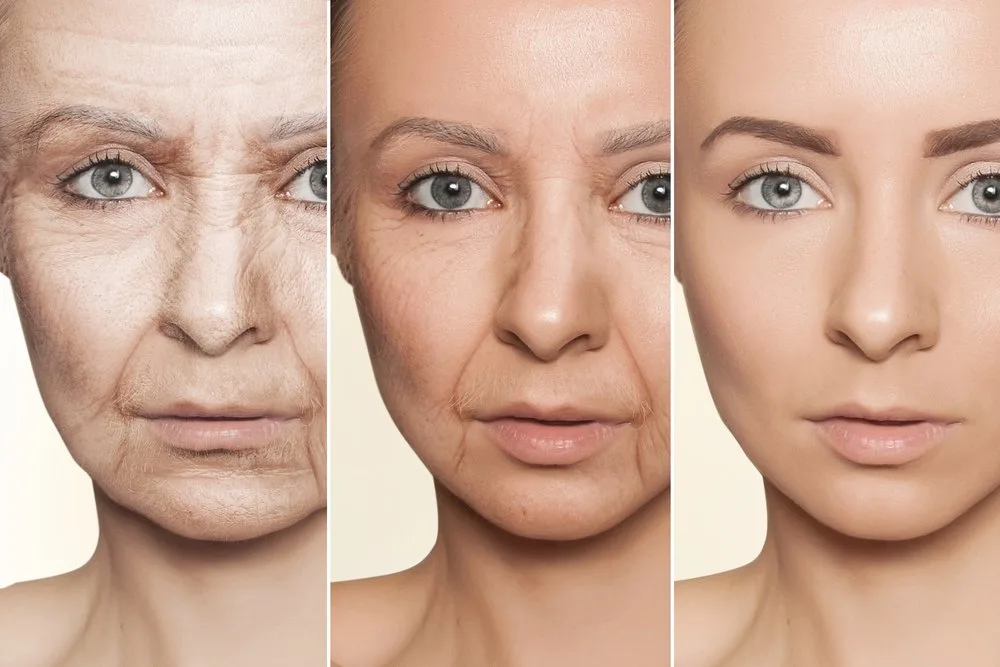Depression and anxiety are associated with premature or advanced biological aging and consequently adversely impact overall health.
Individuals with depressive or anxiety disorders increase the chances of having cardiovascular disease. They also face an increased risk of diabetes, obesity, and advanced physical and mental decline. The chances of suffering from a fatal stroke are increased by 30% in those who have signs of depression and anxiety and these issues remain untreated.
Additionally, depressive disorders and anxiety are considered significant risk factors for many age-related conditions. Research has shown that unchecked physiological stress causes inflammation and hyperactivity of the metabolic system. It also leads to the outward signs of rapid biological aging.
Depressive Anxiety Disorders And Biological Aging In Detail
Scientists examined several ways to differentiate between the normal aging process and the accelerated process of stress and depression.
Neuroscientists found shorter telomeres in depression and anxious patients than healthy ones. Telomeres are the specific protein structures in our DNA found at either end of a chromosome. Telomeres preserve the information in our genes, and the effect of depression and anxiety directly impacts our bodies.
The length of Telomeres has been used as a marker for some time. It can even go as far as predicting the possibility of contracting an age-related disease and even early mortality. To be healthy, Telomeres should be long and form a repeated pattern in our DNA sequence. This sequence has a protective function and guards against aging and cell death.
Depression and Anxiety disorders cause the enzymes to deplete and the telomeres to shrink. Luckily it is possible to reverse some aging effects. This is as long as treatment is offered as soon as a diagnosis has been received.
Along with the telomeres, various studies have pinpointed physiological changes to the body’s central nervous system, specifically systemic inflammation, oxidative stress (not enough oxygen in the body), and problems with the correct function of the adrenal glands. All have been related to premature aging and related diseases.
Stress, depression, and anxiety also impact the brain. They specifically affect the prefrontal cortex that controls emotion and dorsal regions within the midbrain related to sensory information circuits. This part of the brain is connected to reward, addiction, and movement functions.

Photo by engin akyurt on Unsplash
Practical Terms Relating To Biological Aging
In more practical terms, chronic stress and anxiety can lead to severe depressive disorders that affect everyday life. They can make the most minor job or chore seem difficult. They can also take pleasure away from tasks and events that were once pleasurable.
Depressive disorders affect every aspect of the sufferer’s life, and the following markers can help people recognize symptoms of depression.
- Inability to sleep or to stay asleep
- Irritability and moodiness
- Lack of appetite or ability to keep food down
- Loss of interest in things that were once a pleasure
- Lack of interest in physical activity
- No sex drive
- Problems with self-care and grooming
Often the sufferer does not think they have a problem. Depression affects the brain and its ability to reason. Treatment is required as soon as possible to arrange to speed up recovery.
Depressive and Anxiety Disorder Treatment
Treatment can range from exclusive medication to a combination of drugs, exercise and therapy.

Photo by Adam Nieścioruk on Unsplash
Drugs available for depression and anxiety prescribed by a healthcare professional are:
- Selective serotonin reuptake inhibitors (SSRIs). These include:
- citalopram (Celexa)
- fluoxetine (Prozac)
- fluvoxamine (Luvox)
- escitalopram oxalate (Lexapro)
- paroxetine HRI (Paxil)
- sertraline (Zoloft).
- Vilazodone (Viibryd) and Vortioxetine (Trintellix, formerly Brintellix) are newer medicines that act as SSRIs and affect other serotonin receptors.
- Including Tetracyclic antidepressants (NaSSAs), such as Remeron.
- Traditional tricyclic antidepressants, such as Nortriptyline (Pamelor), Elavil, imipramine (Tofranil), and Sinequan.
The list is not exclusive. Several other medications have not been mentioned, but that does not mean they are not effective. For instance, while not technically considered a medicine, l-methyl folate (Deplin) has had some success in treating depression. The FDA categorizes it as a medical food or nutraceutical.
L-methyl folate (Deplin) is the active form of a B-vitamin. It’s also called folate and is available on prescription. It helps regulate neurotransmitters that control moods. Your health care provider will determine which drug is right for you. Medications usually take four to eight weeks to become effective.
Doctors know that if one medication does not work, there are others to try; often, combinations of drugs and exercise, including healthy eating, are prescribed as the cumulative effects are known to combat biological aging and the consequences of depression.
Exercise And Depression
Studies show that regular exercise has massive health benefits regardless of your state of mind. Recently scientists have proven that exercise protects against heart disease, diabetes, and lowers blood pressure. Exercise can lengthen your Telomeres by producing more enzymes that promote healthy telomere growth.
Most regular exercise advocates know that high-intensity exercise releases endorphins or feel-good chemicals into the blood. Low-intensity activity carried out over time releases neurotrophic proteins and growth factors. Nerve cells can then grow, repair or develop new brain connections.

Photo by Jonathan Borba on Unsplash
The improvement in the function of the brain makes those who may have a depressive disorder feel better. Exercise, healthy eating, and a prescribed treatment from your health care professional can make a real difference.
Who Is the Author?

Victoria Walsh





![women [longevity live]](https://longevitylive.com/wp-content/uploads/2020/01/photo-of-women-walking-down-the-street-1116984-100x100.jpg)










